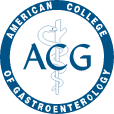A colonoscopy is a screening test that can detect gastrointestinal issues and even colon cancer early, giving you the greatest chance for successful treatment. While the importance of regular screenings is widely recognized, pinpointing the appropriate age for women to begin colonoscopy screenings is crucial and varies based on several factors. Knowing the right time to schedule your first colonoscopy is vital for safeguarding women’s health and ensuring early detection of colorectal cancer.
When Should a Woman Get a Colonoscopy?
The optimal age for a woman to have a colonoscopy depends on personal risk factors, family history, and established medical guidelines. However, Dr. Yuriy Israel at Gastroenterology and Nutrition, P.C. recommends that “everybody should start getting their screening colonoscopy at the age of 45 if they are low risk, meaning there’s no family history of colon cancer or colon polyps or there is no personal history of long-standing inflammatory bowel disease.”
So, if there are no predisposing factors, an average woman should get a colonoscopy at 45.
Dr. Yuriy Israel also noted, “If a first-degree relative has had colon cancer, the recommended age for screening is lowered to 40 or 10 years before the age of diagnosis, whichever comes first.”
Who is at a high risk for colon cancer?
Several factors can increase an individual’s risk of developing colon cancer. Although colon cancer is slightly more prevalent in men, both men and women face a similar risk for the disease. Dr. Yuriy Israel says, “Colonoscopy is a test for both men and women; colon cancer does not discriminate between genders.” Regardless of gender, everyone should get a screening colonoscopy to prevent colon cancer. Women at high risk usually include:
- Age: The risk of colon cancer increases with age, as the majority of cases are diagnosed in individuals over 45.
- Family History: Individuals with a family history of colon cancer or polyps in first-degree relatives are at higher risk. This risk is higher if multiple family members are affected or if the cancer was diagnosed at a young age.
- Inflammatory Bowel Disease: Long-standing inflammatory bowel diseases, such as ulcerative colitis and Crohn’s disease, increase the risk of colon cancer.
- Lifestyle Factors: Poor dietary habits, obesity, smoking, excessive alcohol consumption, and certain medical conditions, such as type 2 diabetes, may increase the risk of colon cancer.
- Race and Ethnicity: African Americans have a disproportionately higher incidence of colon cancer, making their risk higher compared to other racial or ethnic groups in the United States.
Importance of Colonoscopy Screenings for Women
Screening colonoscopies safeguard women’s health by detecting and preventing colorectal cancer early. Colorectal cancer, one of the highest mortality rates worldwide, can be treated effectively with early detection. While traditionally associated with men, colorectal cancer affects women equally, making a screening colonoscopy a must for every person.
Moreover, colonoscopies can detect a lot more than cancer or polyps. Common gastrointestinal conditions affecting women, like colitis, rectal bleeding, and chronic diarrhea, can also be evaluated with a colonoscopy. Detection and treatment of these conditions can improve women’s gastrointestinal health and quality of life.
What to expect for a Colonoscopy?
A colonoscopy, though invasive, enables gastroenterologists to thoroughly examine the inside of your colon. If you have decided to get a colonoscopy, your preparation begins with a change in dietary routine.
Before the procedure, you will be asked to follow a liquid diet for a day or two to prepare your colon for cleansing. The evening before the procedure you will take a laxative that will clear out your colon. Just prior to the procedure, you will receive anesthesia that will make you asleep. During the procedure, the doctor will carefully inspect the lining of your colon with a flexible tube and look for any abnormalities, such as polyps, inflammation, diverticulosis, or masses that can lead to cancer.
Once the examination is complete, you’ll be monitored briefly as you recover from the anesthesia. In most cases, you can resume your normal activities and diet shortly after the procedure.
How Often Should a Woman Have a Colonoscopy?
The frequency of colonoscopy screenings for women depends on various factors. Dr. Israel says, “If the first colonoscopy is completely normal, and there is no family history of colon cancer, then the recommendation is to have a colonoscopy every ten years”.
On the other hand, doctors may recommend more frequent screenings if the first colonoscopy shows any abnormalities. Dr. Israel explained that if polyps are found during the initial screening colonoscopy, subsequent screenings may be required every three to five years, depending on the number and size of the polyps.
Gastroenterology and Nutrition, P.C.: Leading the Way in Expert Colonoscopy Procedure
At Gastroenterology and Nutrition, P.C., we pride ourselves on being the best in providing safe and smooth colonoscopy procedures. Our team of experienced gastroenterologists and healthcare professionals is dedicated to ensuring your digestive health and well-being.
Leveraging our state-of-the-art facilities and advanced technology, we guarantee a seamless colonoscopy experience with highly accurate results. Wait no more, and schedule your colonoscopy appointment with Gastroenterology and Nutrition, P.C. today to ensure good digestive health.
Disclaimer: The age at which women should begin colonoscopy screenings can vary based on individual risk factors, family history, and medical guidelines. So, women must consult their gastroenterologists to determine the most appropriate age for colonoscopy screening based on their unique medical history and risk factors. Please note that the information provided here is for informative purposes only and should not be considered medical advice.




